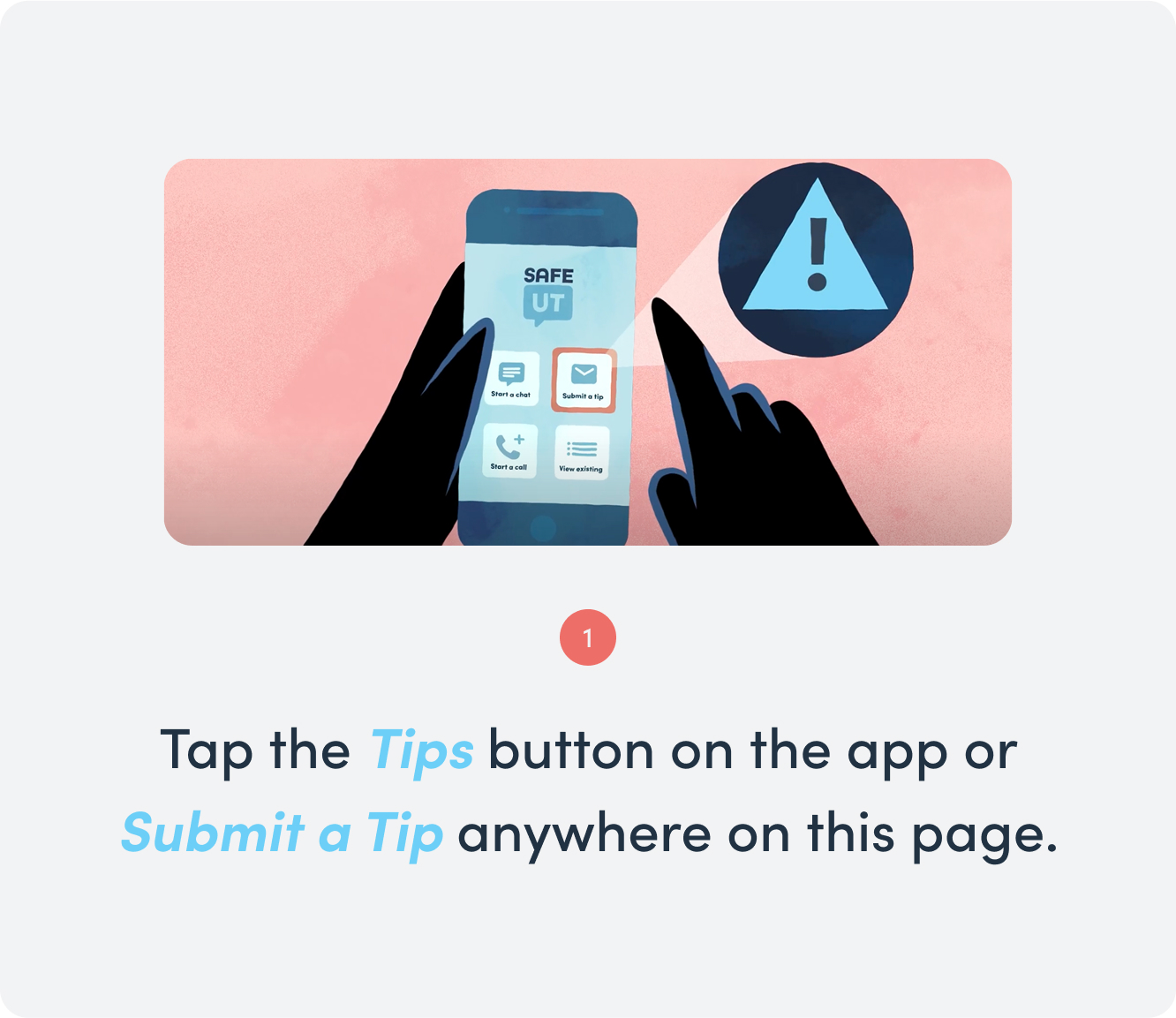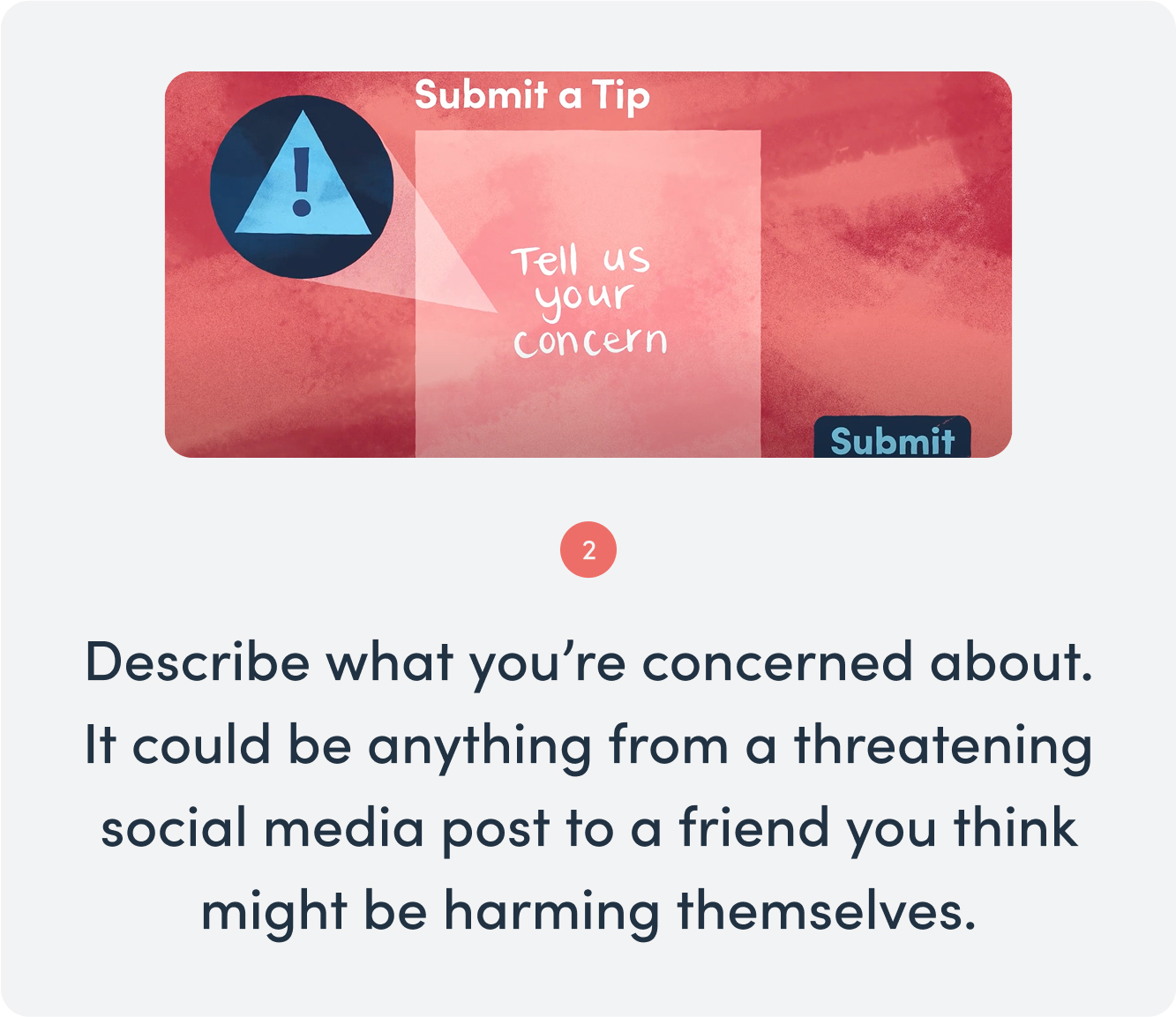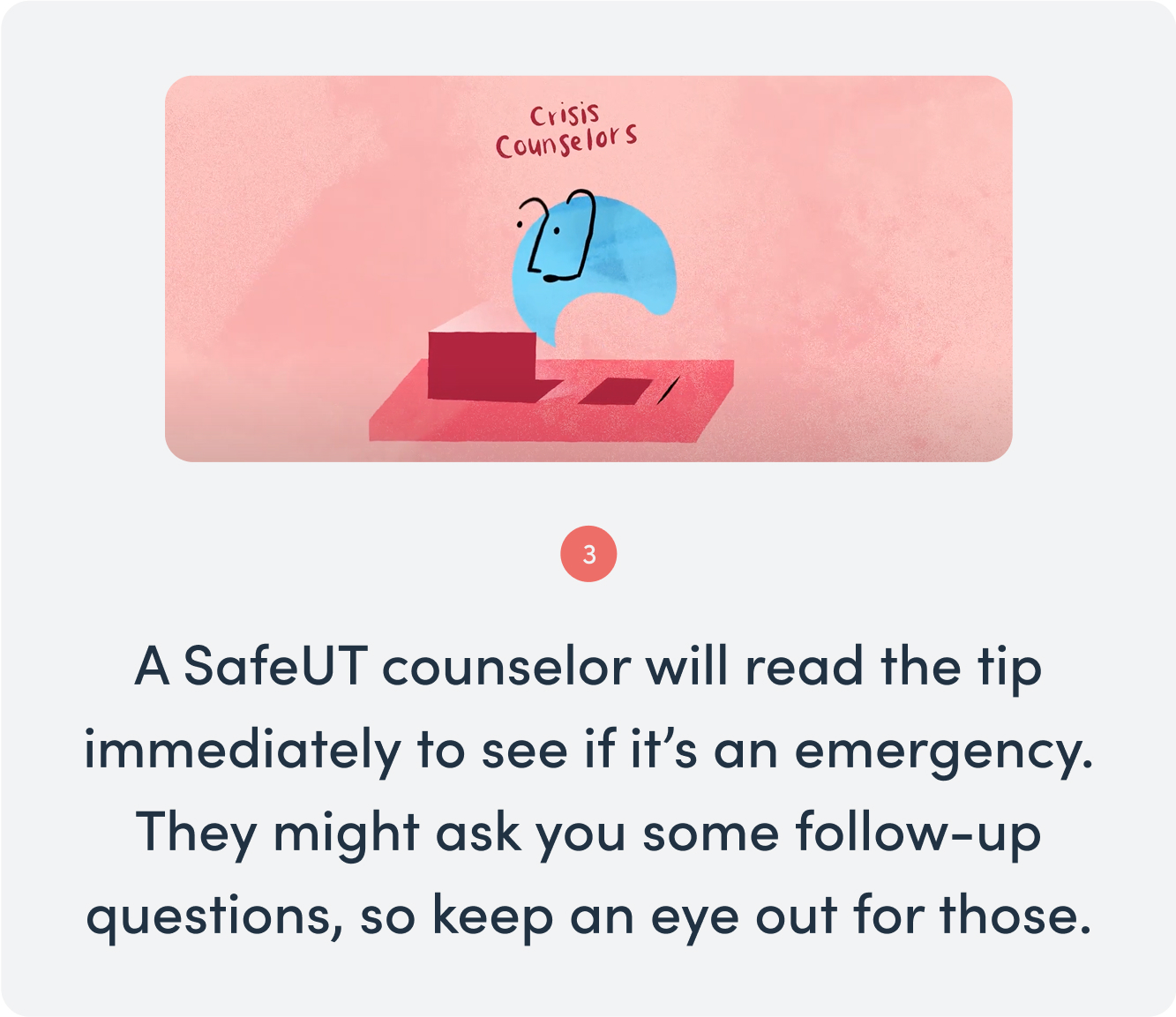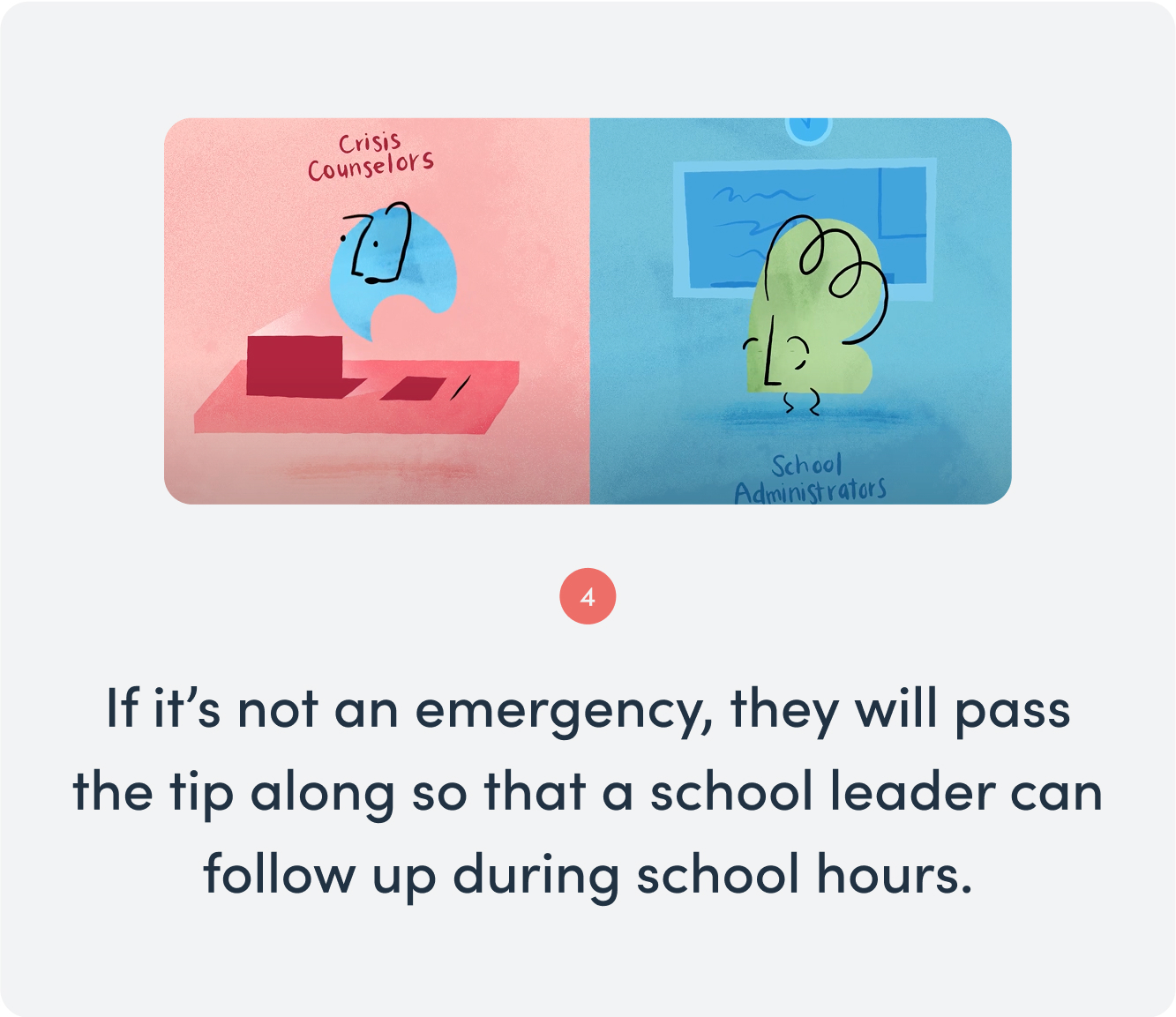

Helping You and Your Child Navigate Challenges—Together
SafeUT brings together expert resources, licensed counselors, and an easy way to submit safety concerns all in one place.
4 ways SafeUT partners with parents
We’re on your team. SafeUT counselors are here as a resource, complementing the support your child receives from you and other trusted adults. Think of SafeUT as a part of your child's mental health toolkit, offering a safe line for them to voice their concerns any time, day or night, year-round.
What are SafeUT counselors
talking to my child about?

SafeUT counselors are here to help students with any worries, stress, or safety concerns they may have. Students often reach out to us about feeling overwhelmed, bullying, thoughts of self-harm, thoughts of suicide, school safety, or concerns about someone hurting others.
We’re on your team. If you’re busy at work or asleep, your student has a safe line with SafeUT. SafeUT counselors can help them learn coping skills and recommend that they talk with a parent or trusted adults in their life. Think of SafeUT as a part of your child’s mental health toolkit, offering a safe line for them to voice their concerns any time, day or night, year-round.
SafeUT counselors work with your child to navigate tough situations, empowering them to share their thoughts and feelings with you. By working together, we can help make sure your child feels understood and supported.
Saying something could save someone. Here's how to let SafeUT know in just 4 steps.
School safety takes all of us. Join us in protecting Utah's students from school threats. If you're worried about someone or something, don't stay silent. Sharing a tip to SafeUT counselors is quick, confidential, and can help keep your school safe.

Help us help Utah's youth
Your donation helps SafeUT provide critical support, counseling, and resources to teens across Utah. Every dollar makes a difference—and every gift helps us be there when it matters most.

Get the SafeUT App—so you've got support whenever you need it.
The SafeUT app is free, confidential, and gives you a line to licensed mental health counselors in Utah who are ready to help 24 hours a day, 365 days a year.
Download to your device.














